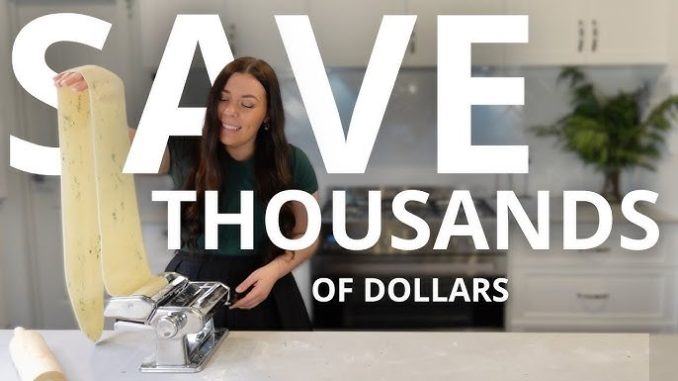
Minimalism is often misunderstood as a lifestyle of deprivation, but in reality, it’s a deliberate approach to consumption that can lead to significant financial benefits. At its core, minimalism is about choosing quality over quantity, clarity over clutter, and intention over impulse. When applied to personal finance, this mindset doesn’t just simplify your life—it can save you thousands of dollars over time. The savings aren’t always immediate or dramatic, but they accumulate steadily as you begin to make more thoughtful decisions about how you spend, save, and invest.
One of the most obvious ways minimalism saves money is by curbing unnecessary purchases. In a consumer-driven culture, it’s easy to fall into the trap of buying things simply because they’re on sale, trending, or marketed as essential. Minimalism challenges that reflex by encouraging you to ask whether an item truly adds value to your life. For example, instead of buying five pairs of shoes that serve similar purposes, a minimalist might invest in one high-quality pair that lasts longer and performs better. Over time, this shift from quantity to quality reduces wasteful spending and leads to more durable, satisfying purchases.
Minimalism also helps eliminate the hidden costs of ownership. Every item you bring into your life carries a maintenance cost—whether it’s time, space, or money. Clothes need washing, electronics need charging, and furniture needs cleaning. When you own less, you spend less on upkeep. For instance, someone who streamlines their wardrobe may find they do fewer loads of laundry, spend less on dry cleaning, and avoid the temptation of constant fashion upgrades. These small savings add up, and they’re often accompanied by a sense of relief from the burden of managing excess.
Housing is another area where minimalism can lead to substantial financial gains. When you prioritize space based on function rather than status or aesthetics, you may find that you don’t need as much room as you thought. Downsizing or choosing a home that fits your actual needs—not your imagined ones—can reduce mortgage payments, utility bills, and property taxes. For example, a couple who moves from a four-bedroom house to a two-bedroom condo might save hundreds each month, while also spending less on furnishing and maintaining unused rooms. The result is not just financial efficiency, but a more manageable and comfortable living environment.
Minimalism also encourages a shift in mindset that affects how you approach income and work. When you’re not chasing material possessions, you may feel less pressure to earn more just to keep up. This can lead to healthier career choices, such as pursuing work that aligns with your values or offers better work-life balance. For instance, someone who embraces minimalism might choose a lower-paying job that allows more time for family or creative pursuits, knowing that their reduced expenses make the trade-off feasible. This kind of financial flexibility is a powerful benefit that’s often overlooked in traditional budgeting conversations.
Even in areas like travel and entertainment, minimalism can be surprisingly cost-effective. Instead of packing itineraries with expensive activities or staying in luxury accommodations, minimalists often seek experiences that are meaningful rather than extravagant. A weekend spent hiking, reading, or exploring local culture can be just as fulfilling as a high-end getaway, but at a fraction of the cost. The emphasis shifts from spending to savoring, which not only saves money but deepens the value of each experience. Over time, this approach fosters a sense of contentment that’s less dependent on external stimulation.
Financial minimalism also extends to how you manage your money. Simplifying your financial life—fewer accounts, streamlined investments, automated savings—reduces complexity and the likelihood of costly mistakes. It’s easier to track progress, avoid fees, and stay focused on long-term goals. For example, consolidating multiple credit cards into one low-interest account can reduce confusion and help you pay down debt faster. Similarly, choosing a few well-diversified investment funds instead of chasing individual stocks can lead to more stable returns and lower management costs. The principle is the same: less clutter, more clarity.
Perhaps the most profound financial impact of minimalism is psychological. When you stop equating spending with happiness, you begin to redefine what success looks like. You’re less likely to compare yourself to others, chase trends, or make purchases out of insecurity. This emotional shift leads to more grounded financial decisions and a stronger sense of control. For instance, someone who once relied on retail therapy to cope with stress might learn to find comfort in journaling, exercise, or connection—all of which cost little or nothing. That kind of transformation doesn’t just save money—it changes your relationship with it.
Minimalism isn’t a one-size-fits-all solution, and it doesn’t mean you have to live with bare walls and empty closets. It’s about aligning your spending with your values and being intentional about what you bring into your life. When you adopt this mindset, the financial benefits are a natural byproduct. You spend less, save more, and make decisions that support long-term well-being rather than short-term gratification. And while the savings may not always be dramatic, they’re consistent, sustainable, and deeply rooted in a lifestyle that prioritizes meaning over excess. In that sense, minimalism isn’t just a way to save money—it’s a way to reclaim it.